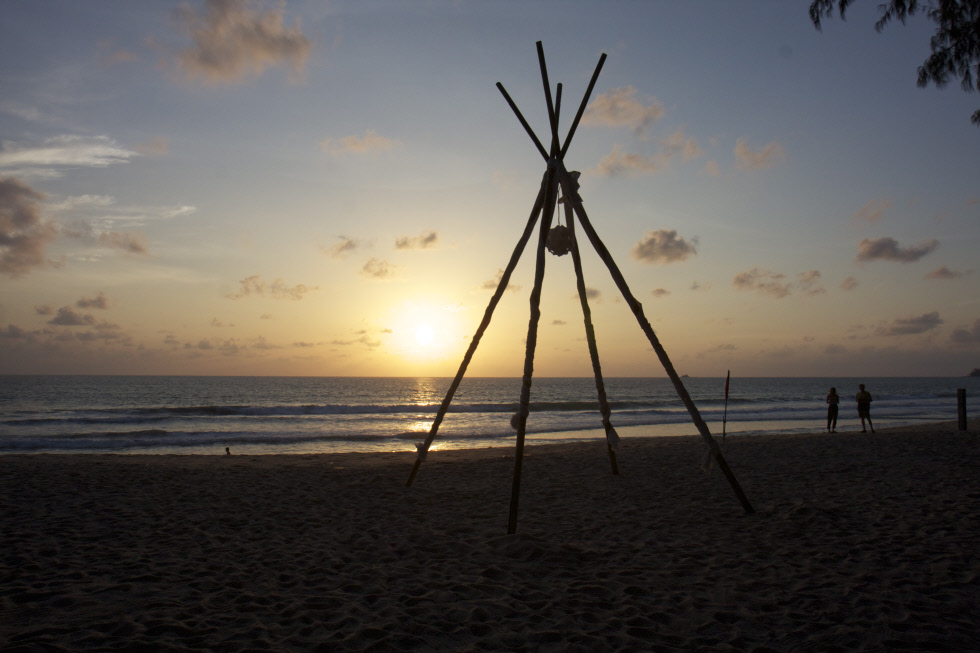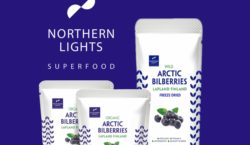Back in the 1990’s and until the early 2000’s Swedish-Finnish hotelier Sam-Erik Ruttman was a well-known face within Bangkok’s expatriate community. Then, working for Dusit Hotels & Resorts he was appointed to manage their Phuket-based property, where ScandAsia interviewed him in 2004. Sam-Erik then continued with the Thai hospitality brand’s expansion into the Middle East, in Dubai. Later, he had suddenly moved to Helsinki. Retiring? Had enough of hotels? Far from it; Sam-Erik was just taking on a slightly new role, as an independent consultant (B8B Hospitality). Now – and very timely in the midst of the extreme Covid-19 crisis – he shares his expert take on the future for hospitality (what new desires and demands will rise etc.?) and more details about what he is focused on these days.
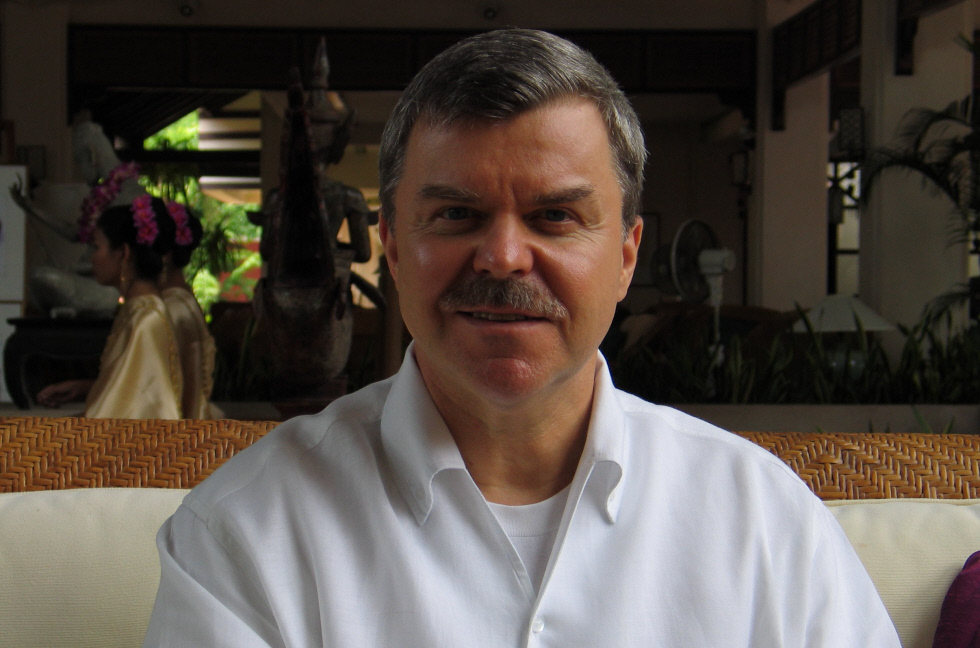
For Sam-Erik moving back to Finland was just the next step in his career. “It was an evolution of what I enjoy doing. I was looking at what would be the next thing in my career. So it was just a natural step and I have not stopped doing the things I enjoy – my passion is hospitality. And I think with the passion for hospitality you can do many things. It was just a direction I thought would be enjoyable, still learning about things – and I having knowledge to share,” explains the Finnish “world-class hotelier”, as one Linkedin recommendation describes him.
After Thailand he was the Regional Vice President, Middle East for Dusit International, during 2005 – 2011 and then Vice President Development & Regional Director Operations (Middle East) for Langham Hospitality Group, during 2011 – 2013.
So already in Dubai Sam-Erik took on a development role and left the daily operational side of running hotels.
“I look at my entire journey and career that includes being with companies like Langham or Dusit. These were great times in that part of the career. I was able to do things I love the most; my passion being the hospitality side of things. This evolved into a chance to move to Dubai and do something I’ve never done before and had always wanted to do; which was developing new projects for great brands and to be part of that whole chain of developing a hotel. That was something new back then but this is now the norm, where companies like Dusit and Langham have a brand book and signature, looks at projects from developers and evaluates whether a brand fits into their vision and if the design would fit with the hotel brand vision.”
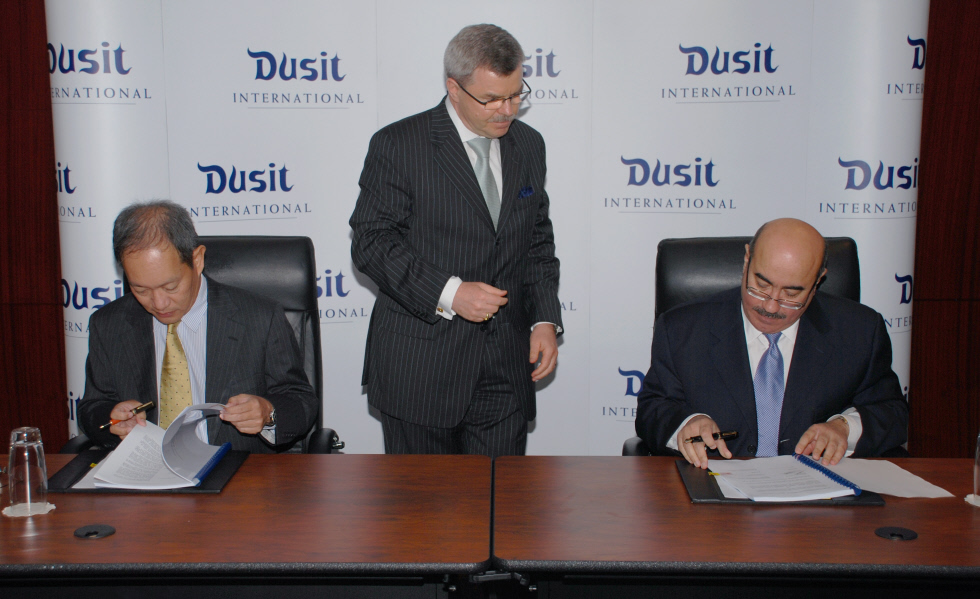
“I was fortunate and privileged to spend eight years doing that, so I learned quite a bit. Meeting new people and connecting with the Middle Eastern way of things I think was also rewarding, as it changed the way of viewing things also from my perspective,” says Sam-Erik from his Helsinki base.
He describes the Finnish capital as a very good environment to live in, while his work can be global, with interest also for projects in Asia going forward.
Nordic sustainable thinking
“I joined Studio Puisto Architects, a firm that looks at projects from a sustainable point of view – ecological and of course economical – without forgetting that it has to be functional and beautiful, so the idea is to create the most beautiful hotel experience for guests that covers both sustainable and ecological aspects. That is also exactly what Nordic thinking stands for in terms of design and using wood as much as possible. It’s a fantastic material, and that contains CO2, so it’s very long-lasting. Whatever we do now for clients is to design sustainable projects. One of the latest projects is in Lapland, where we are getting great insights from a developer who wants to do something that is Sustainable, eco-friendly, but also economical. It sits next to a national park, so there are many considerations.”
A project design needs to be ecological and also economical for the surrounding community. Conceptualising from the customer and traveller’s point of view – what’s important to them – and to create those touch points and weave it into a story, is Sam-Erik’s expertise.
“With the architect firm we create a story about the area, make the renderings and discuss with a developer jointly what they think about the concept and if it was part of their vision too. And with this teaser concept we go to investors and hotel brands to generate interest. In this way I’m part of the process from the beginning until the end – to get the right hotel operator and then to possibly continue working closely with the particular developer in the future, advising them when the hotel is opening.
The Lapland project is also partly geared for international travellers, including hikers who want to pick nature’s summer harvest (mushrooms and berries). “We are advancing this opportunity.”
Lapland as destination, also has a unique selling point (aside famous for winter sports, ice hotels and Santa Claus) – namely its chilly summers.”With changing weather patterns in Europe the summers are often extremely hot, while the temperature up there is much cooler. That has created an interest; people are willing to pay a lot to come and have that kind of cold summer. When talking about cliché words like ‘experiential travellers’ and so on – these are people who want to experience something else, and maybe they want to learn about themselves also! And Lapland is a huge area so it never feels crowded there. It offers the fresh air and peacefulness that people in many places do not have. These are the things that people are longing for and valuing more than before.”
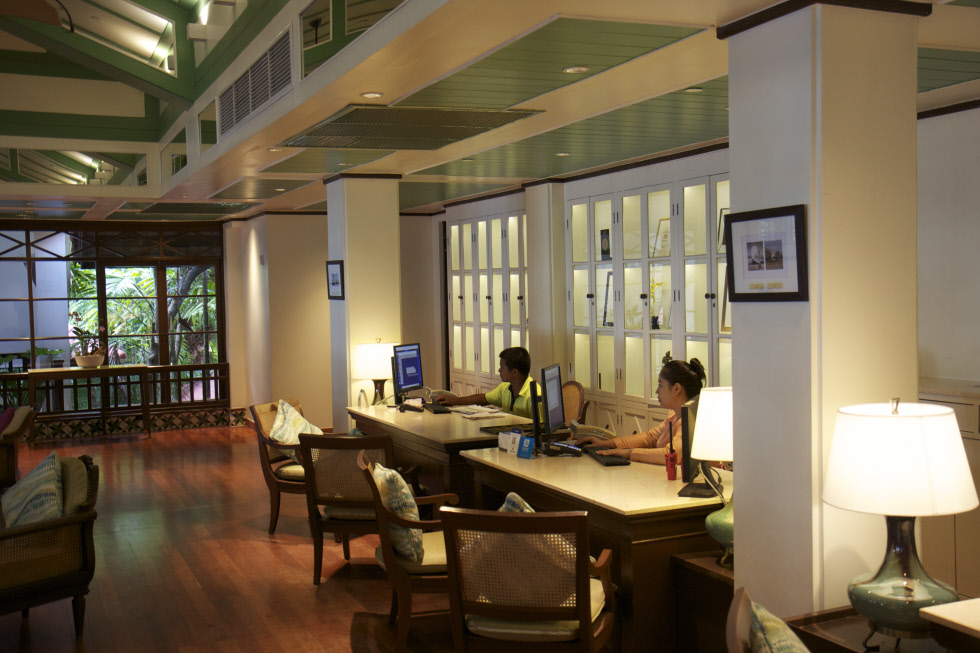
Other countries of interest to Studio Puisto Architects are the upcoming destinations in Europe, such as Albania. Malta is also an opportunity in the view of Sam-Erik who has been active there for a Malta time.
“Aside hotels, we are also looking at a different approach to senior living, providing the hospitality aspect with a service ambassador feature to senior homes that tend to be institutional. It is a great market for people in Finland or while they spend most of their time in warmer climates in Southern Europe.”
Hospitality Talks
To inspire the hospitality sector and get inspired himself Sam-Eric is also active in social media platforms as host of his own webinars ‘The Social Hotelier’ (also a podcast) and a show together with his friend Mr Abid Butt called ‘Hospitality Talks’. This also builds an opportunity for Sam-Erik to develop a dialogue with potential customers and provide the services they are looking for. “It’s a really modern way of reaching out to customers more than ever before, and that’s what I enjoy doing.”
The latter, launched in early 2020, turned out to be very timely: inviting panels with industry players to discuss the burning issues in the industry and how they see things.
“I find that with the lockdown people from around the world have a lot of time on their hands so the timing was actually good for us to launch this and then got traction with people joining in. We started from nothing and are reaching more and more subscribers and viewers, which shows that the topics are of interest to people.”
Exploring new places
Covid-19 has of course inevitable been part of every discussion. “Everyone is coming to terms now with how life can change from one day to another. Climate change seemed as kind of an abstract concept to many, but now when we experience a virus that quickly puts everybody in the same situation, I think it will make people rethink how things are,” reflects Sam-Erik.
And, given all the uncertainties people are rethinking taking any longer holidays abroad.
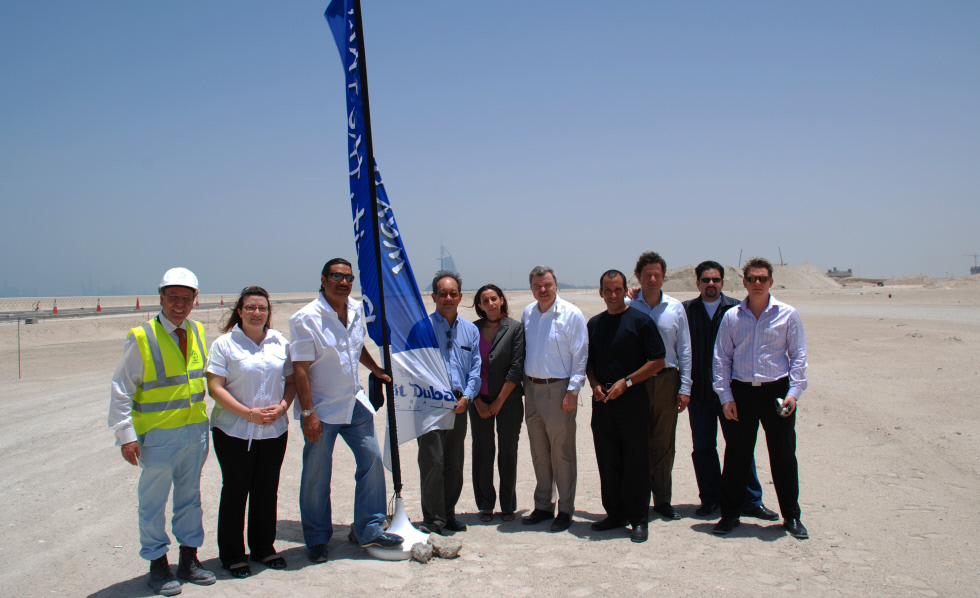
“For mainstream travel the traditional way of thinking of holidays may change because of all this. We will start to see our own country more than ever before, with short vacations and long weekend trips being the way forward at the moment. Resort areas and city weekend hotels will also do well, and even in the cities where you have city weekend hotels, those are the way things are going with travel. But I think in the future people will venture into places they have not visited before. Because sustainable travel means you stay in the same place for a longer period of time, to familiarise yourself with the area. So, digital nomads will continue travelling. And a group of people who don’t feel they are in the risk group, the Millennials, will want to visit places they’ve never been before.”
The hotels also need to rethink, and, as Sam-Erik shares from one webinar, this should not focus on communicating to guests how the hotel has a greatly improved cleaning procedure.
“Did they not provide clean rooms to their customers previously? They have to change their narrative about cleanliness and so on, and think really clearly how they communicate this in advance to their customers to make them feel comfortable, and nail the customer experience 100 per cent every time. So they have to rethink how they have done it before.”
“If you ask yourself: ‘What if this ‘new normal’ does not change for the next five or ten years, what will you do? Are you going to wait until things come back to normal or are you going to do something about it?’ Of course on has to have a thought process about what can be done differently than before. And how can I make the business more viable, more interesting and with more value to those customers; actually with much better value than ever before? That means that hotels need to look at every single step – from when guests get interested until they are leaving – and rethink every step to provide better value. That also requires having enough data about the customers so they can make personalisation – the key to a great experience. It is how you make people feel that will be the key factor and personalising that experience, not just providing the service as what you deliver to somebody – that’s very mechanical. This shift in rethinking is nothing new, it’s just in focus because of that people are more sensitive than ever before to travel,” he elaborates.
“Staying away from the crowds is going to be a key factor, and also the growth of areas where they have not yet built a hotel. As long as there is good infrastructure and more accessibility, those are going to be ever more popular. And it doesn’t have to be a branded hotel. As long as there is good design, good culture set into that place they will do well.”
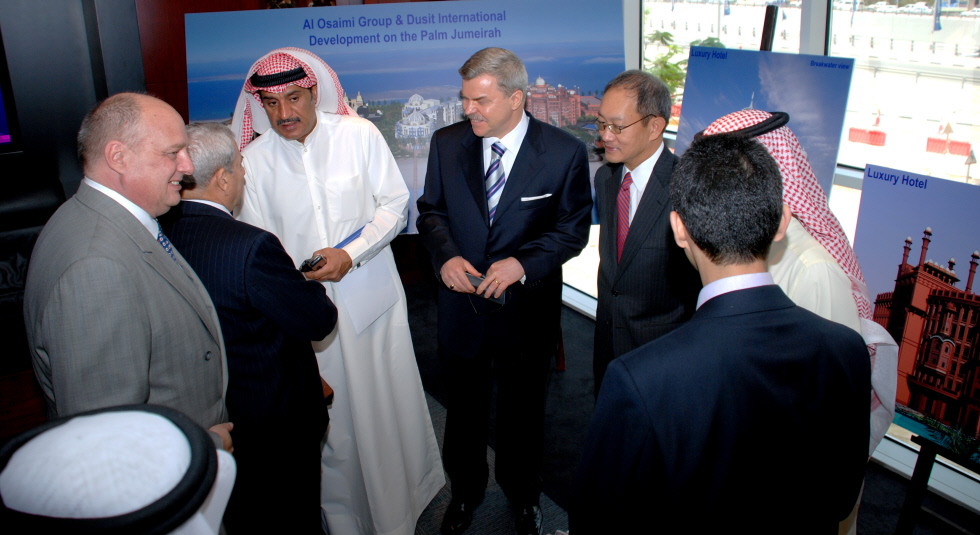
Old school industry
In relation to customer data, Sam-Erik agrees that hotels tend to be more reactive than proactive: “While focusing on the face-to-face experience, they [except the big brands] have traditionally been old school and cautious in catching up on how the world has been changing during the last twenty years with modern IT. They can find out more about the customer through the data they can collect to create a very customer-driven experience. Also you can separate each step and make them more profitable for yourself by tying them into the customer experience. That’s why the social revenue can be also different than the traditional revenue has been so far. And how can you arrange the pre-arrivals? Do you offer keyless access to the guest room – and highly personalised to be precisely as expected by the guest upon arrival? Those are the things that hotels that are forward-thinking need to rethink and spend more time on. The way we’ve done it before, it’s not going to be like that going forward!”
“And, crucially, the long list of things promised they also have to deliver, and continue with it; it’s not just as PR exercise.”
Beyond so-called Platinum cleaning procedures Covid-19 will also be a watershed moment for hotels when it comes to air purification – a topic not even discussed as of June 2020, says Sam-Erik.
For any high-rise hotel, and with central ventilation you’ll need to invest quite a bit to have fresh air, like airports and modern airplanes with their HEPA air filters that can catch even the smallest particles. People are going to ask those questions: ‘How clean and fresh is the air? What am I going to bread inside? What are you doing about it? And they are going to choose the places to stay based on that; it’s a fundamental part of the experience. And how fresh does the room make them feel when they walk in? It’s going to make all the difference. So, I think hotels need to install HEPA filtration.”
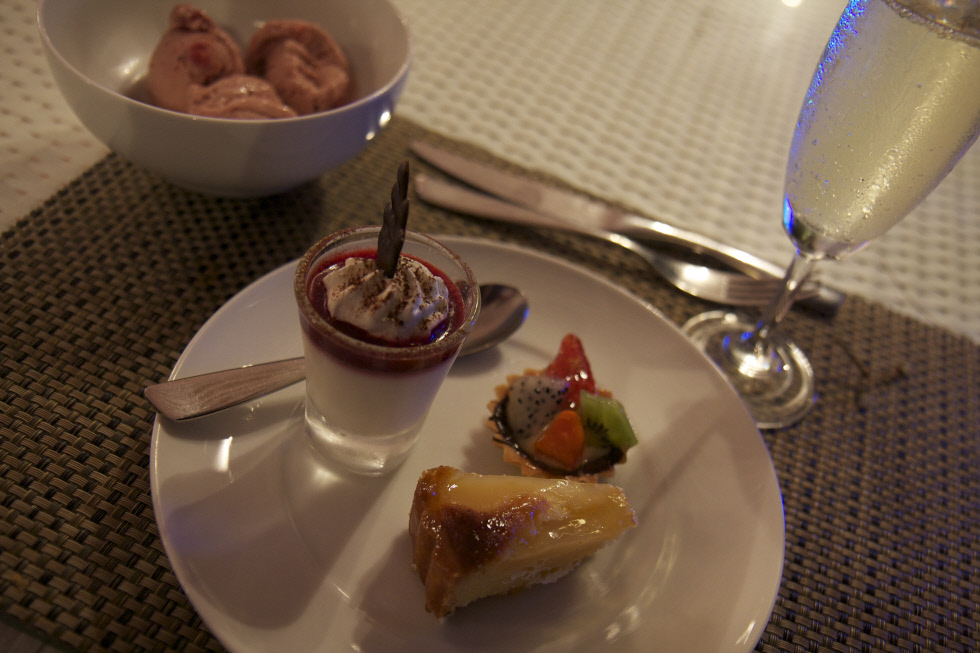
“A crisis like this always brings new things that make improvements. And people will always travel – it will not end – it’s just at under what conditions and expectations, where and why, that have changed from pre-Covid19.”
There is also a downside of tourism in that it is contributing to environmental degradation and is often managed in an unsustainable way. Now there is the idea of a ‘Day after’, with hopefully a more balanced and sustainable reality. Covid-19 is giving nature a respite, with almost immediate benefits. Sam-Erik says that a particular rare dolphin species has for instance reappeared in the Baltic Sea.
“It’s a good opportunity for the regulatory system to enforce certain standards that could not be enforced before and at the end of the day it is the customers’ decision where they want to stay. And I think customers will be more critical than ever before because they have seen the alternative now. Price is not the only thing people look at but also regarding how you are leaving this place for future generations. And I sincerely hope this is on people’s minds because they will see how Mother Nature took care of things during these months and showed us what it can be like if you respect it,” ends Sam-Erik.
